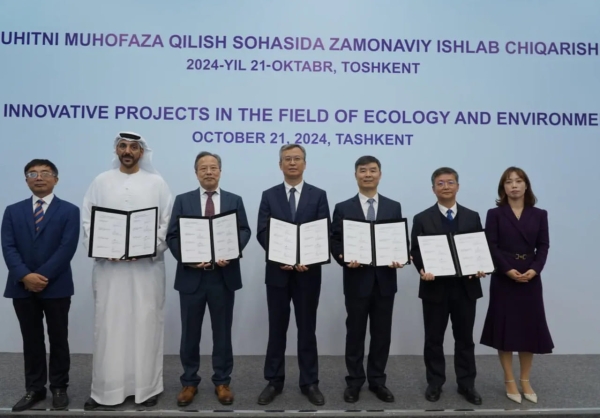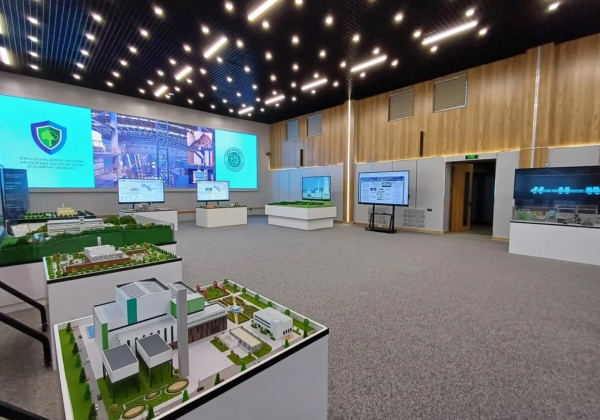Uzbekistan has signed cooperation agreements with six major companies from China and the UAE to construct waste-to-energy plants across 11 regions. This initiative aims to tackle waste management challenges, generate alternative energy, and contribute to environmental sustainability.

During his recent visit to the Central Asian University for Environment and Climate Change (Green University), President Shavkat Mirziyoyev reviewed project proposals focused on waste recycling and energy production, underscoring their importance for Uzbekistan’s environmental goals and economic progress.
These projects, worth $1.28bn, involve building plants that will convert solid municipal waste into electricity. Set for completion by December 2026, these facilities will collectively process over 4.7mn tons of waste annually to generate 2.1bn kWh of electricity, valued at about $97mn.
The waste-to-energy plants are expected to reduce landfill volume fivefold, conserve 152mn cubic meters of natural gas, and decrease greenhouse gas emissions by 2.4mn tons, while creating 1,200 new jobs. Construction begins in January 2025 in Andijan, Bukhara, Jizzakh, Kashkadarya, Navoi, Namangan, Samarkand, Syrdarya, Fergana, and Tashkent.

Project Highlights
China CAMC Engineering will establish two plants in Tashkent and Andijan, each costing $350mn. These facilities are expected to process 1.38mn tons of waste per year, reduce landfill use by 50%, and produce 630mn kWh of electricity. The project will supply energy to 36,000 households and create 300 jobs.
Shanghai SUS Environment plans to invest $620mn in Samarkand and Kashkadarya to process 1.1mn tons of waste annually, producing 480mn kWh of electricity. This project is expected to reduce landfill use by 50%, power 27,000 households, and create 300 jobs.
China Everbright Group will construct two plants in Namangan and Fergana at a cost of $283mn each. These plants will process 1.1mn tons of waste annually, reducing environmental impact, producing 455mn kWh of electricity, and supplying energy to 26,000 households. The initiative is projected to create 300 jobs.
Chengdu Environmental Group is set to invest $135mn in Jizzakh, where a plant will be built to handle 547,500 tons of waste annually. The facility will produce 230mn kWh of electricity, enough to power 13,000 households, while generating 150 jobs.
Tadweer Group of the UAE will invest $200mn to build a waste incineration plant in Bukhara, projected to process 547,500 tons of waste annually and produce 363mn kWh of electricity. This plant will benefit 21,000 households and create 150 jobs, while training 350 specialists each year.
Sejin from Korea will contribute $55mn to develop a waste-to-energy plant in Tashkent, aiming to reclaim 59 hectares of landfill, reduce greenhouse emissions by 53,000 tons, and produce 16mn kWh of electricity.
These projects support Uzbekistan’s shift toward a circular economy, ensuring better sanitary conditions, minimizing environmental risks, and offering economic benefits. The waste recycling process not only provides alternative energy but also supplies raw materials and organic fertilizers, contributing to eco-industrial development on former landfill sites.




